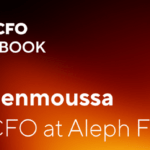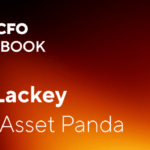5 Keys to growth that embrace sustainability
Companies all over the world are recognising the importance of the ‘triple bottom line’: a sustainability framework that measures a business’s success in terms of profit, people, and planet.
Jim Buckle, CFO at meal delivery service company Gousto, stresses that while profit is no longer the sole focus of stakeholders, you don’t need to sacrifice rapid growth in the quest for making socially and environmentally responsible business decisions:
‘There’s starting to be a very healthy end-to-end demand from the investment community wanting to push in the right direction, and at the other end consumers also wanting to push in that direction. And therefore companies…can ride both those waves to be doing the right thing’.
We recently interviewed Jim on The CFO Playbook podcast, where he shared tips for how to scale while prioritising sustainability.
1. Recognise that sustainability is in demand
As consumers continue to push businesses to do the right thing for both people and planet, investors are following suit.
In fact, Jim emphasises that you don’t want to wait to long or you’ll get left behind:
‘Businesses that are seen as being harmful in the long run…there may be people that are willing to invest [today], but that will become less and less’.
When your customers are aligned with your company values, they will show their support with their purchases and profit will follow.
2. Build your business on a sustainable model
When a company’s purpose and values are aligned with sustainability, achieving your goals with growth becomes second nature.
Jim explains that there was no internal debate at Gousto about becoming a B Corp:
‘I think the purpose of the business is very much ingrained in what we do. And actually our business model in itself is a more sustainable model than the alternatives of going to the supermarket in terms of much lower food waste, efficiency in terms of packaging, and then the supply chain and all that that goes with it’.
As CFO, the debate comes in when you start to assess how much you invest in one year or the next towards your sustainability initiatives.
3. Create an organisational structure that solves for future problems
If your company is growing really fast, you need to have a flexible organisational structure in place that will expand at the same rate.
Jim says that even as your company doubles or quadruples its headcount, move like a startup:
‘I’m constantly iterating how the future looks and what that means in terms of growing the size of the team or what it will mean in terms of customer demand…as a leadership team, we probably spend at least half our time thinking about: What’s the optimal organisational structure?’
As a leader, you can’t be reorganising to put out today’s fires – you need to be forward thinking if you want to build a company that will continue to grow for years to come.
4. Hire with automation in mind
Automation is an integral part of scaling a business, but as your company grows you have to have the right roles in place to optimise the technology.
Jim reflects on the needs at Gousto, which has a 100% CAGR year over year since 2016:
‘We need to expand into having someone that’s more dedicated to looking at ongoing process improvement, because as the business scales and the complexity grows, we need to make sure we keep pace with that…investment in systems expertise and process improvement expertise is important.’
The more you add automation, the more opportunity for critical thinking by your finance team. As CFO, you want to make sure you’re strategic in hiring folks who will rise to the challenge.
5. Be proactive in driving the business forward
A well-rounded finance team should have the knowledge and resources available to help drive a business forward in a sustainable way.
Jim believes that the role of finance isn’t just to support the business, it’s also to be a key part of what makes the business successful:
‘There’s no limit on who can have good ideas. And actually if you’re in a commercial finance role, you’re perfectly placed in terms of your ability to understand the numbers and have access to data to have great ideas yourself.’
CFOs and other finance team leaders should look for opportunities for their team to take initiative, cultivate curiosity, and put themselves in an ideation mindset.
Sustainability is a mindset
In order to achieve growth in the long term, company leaders should embrace sustainability as a framework to build a business.
If prioritising people and planet is part of everything you do, from your purpose statement to your processes to your benchmarks, sustainability doesn’t function as a ‘nice to have’ or a future problem to address. There’s a whole lot you can do today in your finance profession to help ensure a profitable and sustainable future.
Sign up to The CFO Playbook Newsletter
Get extra insights from the podcast every Tuesday, to help you thrive in your business and career.







